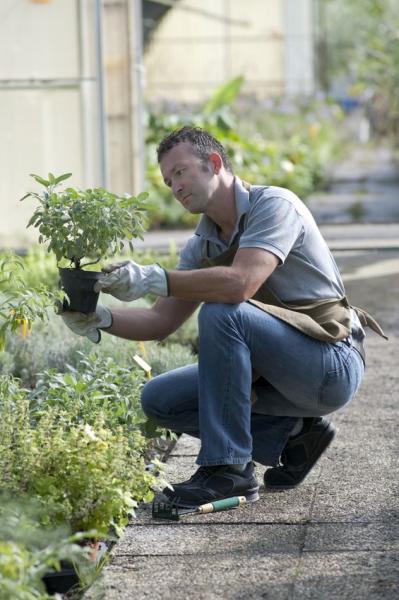Here’s a fact: today’s living costs are continuously on the rise. This is one reason why most families look for alternative ways to save money. Some families have resorted to growing vegetables in their own backyards. They are doing this not only to save money but also to ensure the health of their family members. These people read tips for home gardening vegetables, since they are aware that by growing their own vegetables, they could eliminate the use of harmful and toxic chemicals and pesticides. Hence, their produce would be healthy and full of nutrients.
Other people have the notion that a vegetable patch need not be at a prominent space in the garden. Instead, they choose a barren area in their garden to convert into a vegetable patch. Nevertheless, through careful planning, you can find ways to incorporate the patch and make it a striking feature of your garden. In fact, the patch may even lend a hint of homeliness that your flowerbeds, bushes, and shrubs may not be able to capture. Of course, you need to keep a few things in mind before taking on the task of home vegetable gardening.
For instance, when you read tips about home gardening vegetables, you’ll see how experts constantly emphasize the importance of exposure. What does this mean? Well, this means the first thing you need to consider is picking out the “earliest” spot for your vegetable garden. As much as possible, you need to find a plot or patch of land that slopes a little to the south or east. Why is that? That area would catch the earliest rays of the sun and hold it late. In addition, that area would place your vegetable garden out of the direct path of strong, chilling winds. Otherwise, it would be best to ensure that a fence (or a building perhaps) would shield your vegetable garden from this direction of the wind. If both were impossible to erect, a hedge or some low-growing shrubs would suffice. The important thing is to make sure the vegetable patch is aptly exposed and well protected.
The next thing you need to consider is the soil. Reading books about home gardening vegetables, you’ll see that finding a spot of ideal garden soil in your available land is not always easy. Nevertheless, you can work up the soil and make it productive as long as the soil’s condition is good (meaning it’s not counted among the very worst of soils). Keep in mind that you only need a substantial land area to convert into a vegetable garden. Hence, it won’t be too difficult for you to cultivate even the muckiest soil that’s mostly composed of pure sand and turn it into something that yields tremendous crops annually. As long as you know how to treat your soil properly, even the most rundown soil can start producing richly.
When your soil’s ready and you think the area is well exposed, it’s time to choose the vegetables you would grow, but not before you plan beds for early, middle of the season, and late varieties. Keep in mind that most vegetables require at least six hours of sunlight per day while some require eight. Therefore, it might be a good idea to group your vegetables accordingly. If you plan to plant quick-growers like lettuce and radish, you may opt to plant these between the rows of plants that mature longer; thus, you utilize your available area fully. Just make sure you water your vegetable garden sufficiently, because vegetables thrive through extra watering. An inch or more of water every week would suffice especially when the vegetables start to yield.
To avoid the use of pesticides, be vigilant in watching your vegetables for pests during the growing season. Organic gardening is the best route to take. It’s a healthy and environment-friendly alternative over pesticides and other chemicals. It would also be wise to make a compost pile for your vegetable waste after you have reaped your crop. You can recycle this for the next planting season.
Books, articles, and write-ups about home gardening vegetables are one in saying that a flourishing vegetable garden is possible if it has proper exposure, the right soil, ample protection, and proper cultivation. By ensuring all these, all your hard work would surely pay dividends especially when your garden starts yielding bountiful harvest.
To avoid the use of pesticides, be vigilant in watching your vegetables for pests during the growing season.





